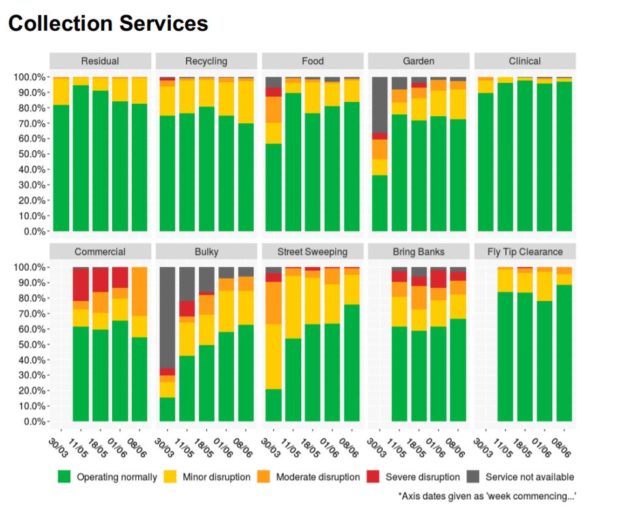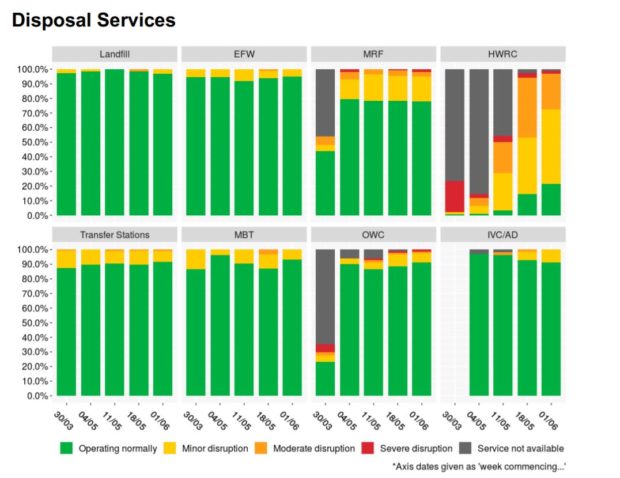The number of councils reporting no disruption to their recycling collections has fallen again, according the latest survey results by the Association of Directors of Environment, Planning and Transport (ADEPT).
In the tenth set of results published on the impact of Covid-19 on waste services, 70% of responding authorities were running recycling services as normal, down from 75% last week and 81% the week before.
Normal services in residual collections also fell slightly, from 84% to 83%. Other slight falls were reported in garden and commercial collections services, while there were rises in food waste, fly tip clearances and street sweepings.
ADEPT reported bulky collections had improved ‘incrementally’ since the end of March, with only 7% of services being completely unavailable.
Balance
Ian Fielding, chair of ADEPT’s waste group said: “The slight increases in disruption we are seeing in some areas corresponds to improvements in others, and shows that councils are effectively balancing available resources to cover service priorities.
“Overall, services continue to improve incrementally as councils work out new operating methods. This is testament to the ingenuity of the sector, and the commitment of local government, our partners and our staff rot providing high quality public services.”
Disposal services
For disposal services, 100% of landfill sites are now operating as normal, up from 97%, while 96% of energy from waste plants are operating as normal, a 1% increase.
Meanwhile 82% of Material Recycling Facilities (MRFs) are reporting no disruption, an increase of 4% from last week.
For household waste and recycling centres, there has been a slight reduction in the amount of those reporting normal services, from 21% to 19%.
The results show that only 1% of councils are not providing household waste recycling centre (HWRC) services; however, fewer councils are reporting sites to be operating normally this week, with 42% reporting moderate or severe levels of disruption.
Causes
The greatest cause for disruption to collections services are the effects of social distancing, highlighted by 41% of responding local authorities.
This was followed by staff absence due to self-isolation, which was identified by 33%.
Arisings
This period’s results show percentages of waste arisings, which are higher than usual.
Eighty-four per cent of councils reported higher level of residual waste arisings, with a reported increase in the region of ‘0-20% greater than normal’.
The vast majority (89%) of responding councils reported higher levels of recycling waste, with around half reporting increases in the region of 0-20%.
There were also higher levels of food and garden waste, which were reported by up to 70% of councils.
The post ADEPT survey shows continued recycling disruption appeared first on letsrecycle.com.
Source: letsrecycle.com Waste Managment




